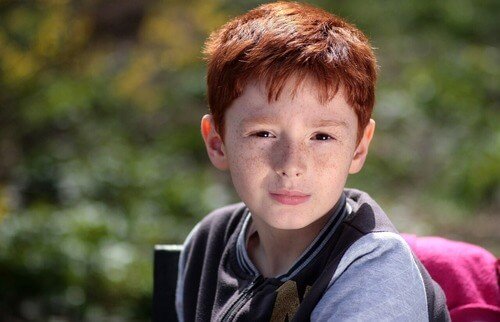Raising an Emotionally Intense Child: A Parent’s Guide to Thriving Together
Raising an emotionally intense child is a beautiful, wild, and sometimes overwhelming journey.
One moment, your child is bursting with joy, overflowing with love, and lighting up the room. The next, they’re crumbling under frustration, tears streaming down their face over what seems like the smallest thing.

Does this sounds familiar, raising an emotionally intense child comes with unique challenges, but it’s also filled with deep connections, incredible moments of growth, and the opportunity to nurture a child who feels the world in ways most can’t imagine.
What Does It Mean to Have an Emotionally Intense Child?
An emotionally intense child experiences emotions on a larger-than-life scale—both the highs and the lows. They may:
✅ Feel deep empathy for others
✅ Have strong reactions to disappointment or change
✅ Struggle with frustration, perfectionism, or overwhelm
✅ Show passionate curiosity and a love for deep conversations
✅ Get easily overstimulated in loud or chaotic environments
These traits can be exhausting to manage, but they’re also signs of a deeply thoughtful, sensitive, and passionate individual.
Your child isn’t too much—they just need guidance to understand, express, and regulate their emotions in a healthy way.
Step 1: Shift Your Mindset – Your Child’s Intensity Is a Strength
It’s easy to feel frustrated when your child’s emotions seem unpredictable or overwhelming. But let’s flip the script: Emotional intensity isn’t a flaw—it’s a superpower.
Children who feel deeply also:
✨ Form strong connections with others
✨ Have big ideas and creative minds
✨ Are deeply compassionate and caring
✨ Are often highly intelligent and insightful
Instead of seeing their emotional intensity as something to “fix,” start viewing it as something to understand and guide.
👉 Reframe Frustration: Instead of “Why is my child always so dramatic?” try “My child feels deeply—how can I help them navigate these emotions?”
Step 2: Help Your Child Identify and Name Their Feelings
Big emotions feel scary when kids don’t know what they are. Helping them name their feelings gives them power over them.
Try These Simple Strategies:
📝 Use Feeling Charts – Show pictures of different emotions and help your child identify what they’re feeling.
🎭 Act It Out – Use pretend play or role-playing to help younger kids recognize emotions in themselves and others.
📖 Read Emotion-Focused Books – Stories can help kids see that their feelings are normal and manageable.
✨ Example: Instead of saying “Stop freaking out!” try: “I see that you’re frustrated because we have to leave the park. It’s hard to stop something fun. I understand.”
The goal isn’t to stop the emotions—it’s to help your child understand them so they can regulate them.
Step 3: Teach Healthy Coping Skills for Big Emotions
Your child doesn’t want to feel out of control. They just need tools to manage their emotions in a healthy way.

Simple Ways to Help Your Child Cope:
🧘 Deep Breathing – Teach them to take slow, deep breaths to calm down.
✍️ Journaling/Drawing – Let them express emotions on paper. 🏃 Physical Movement – Encourage jumping, running, or stretching to release built-up energy.
🧸 Create a “Calm-Down” Corner – A cozy spot with soft blankets, books, or fidget toys where they can go to self-soothe.
✨ Example: If your child is overwhelmed, say: "I see you're feeling really big feelings right now. Let’s take three deep breaths together to help your body feel better."
Step 4: How Do You Discipline an Emotionally Intense Child?
Set Gentle but Clear Boundaries
Just because your child feels things deeply doesn’t mean they should act on every emotion without limits. Structure helps them feel safe and secure.
Healthy Boundaries for Emotionally Intense Kids:
✅ Validate their feelings, but set behavior limits. “It’s okay to be mad, but it’s not okay to hit.”
✅ Be consistent with rules. Kids thrive when they know what to expect.
✅ Use calm, firm language. No yelling—model the emotional control you want to see.
✅ Offer choices instead of commands.
“Would you like to take a break in your calm-down corner or go outside for a walk?”
Boundaries don’t mean shutting down their emotions. They mean helping your child learn self-regulation skills while still feeling heard and understood.
Step 5: Signs of an Emotionally Intense Child
Recognize When Your Child Needs a Break
Emotionally intense kids can burn out quickly. Too much stimulation can lead to meltdowns, anxiety, or emotional shutdowns.
Signs Your Child Needs a Break:
⚠️ Becomes easily overwhelmed or irritable
⚠️ Struggles to transition between activities
⚠️ Clings to you or avoids social situations
⚠️ Frequently complains of headaches or stomachaches (stress signs!)
What Helps?
✅ Quiet time – Let them have downtime with no screens or loud noises.
✅ Sensory-friendly spaces – Dim lights, soft textures, calming music.
✅ Pre-plan transitions – Give countdown warnings before switching tasks.
Step 6: Celebrate the Strengths of Emotional Intensity
Your child’s big emotions come with big gifts. Their intensity means they:
🌎 Have deep empathy for others
🎨 Are incredibly creative
💡 Think outside the box
🔍 Notice details others miss
Instead of focusing on the hard parts, nurture their strengths.
💖 Encourage their passions – Let them dive deep into topics they love.
💖 Praise their kindness – “I love how much you care about your friends.”
💖 Give them responsibility – “You’re so thoughtful—can you help me pick out a gift for Grandma?”
The more you help your child see their emotional intensity as a strength, the more they will grow into it with confidence.

Final Thoughts: You’re Doing an Amazing Job
Parenting an emotionally intense child isn’t easy, but it’s worth it. The deep conversations, the boundless creativity, the moments of pure love—these are the rewards.
You’re not failing. You’re learning. And so is your child.
So on the hard days, take a deep breath and remember: You were chosen to be their parent for a reason.
Keep showing up, keep learning, and most importantly, keep loving your child exactly as they are. 💛
Resources That Will Help With Raising an Emotionally Intense Child for Further Support:
📚 Books to Check Out:
- The Highly Sensitive Child by Elaine Aron
- Raising Your Spirited Child by Mary Sheedy Kurcinka
- The Explosive Child by Ross W. Greene
🎧 Helpful Podcasts:
💬 Join Parenting Groups:---l,,,,kiu8b88
- Facebook groups for parents of emotionally intense kids
- Local support groups or online forums
Remember, you’re not alone on this journey. And you? You’ve got this. 💪✨













